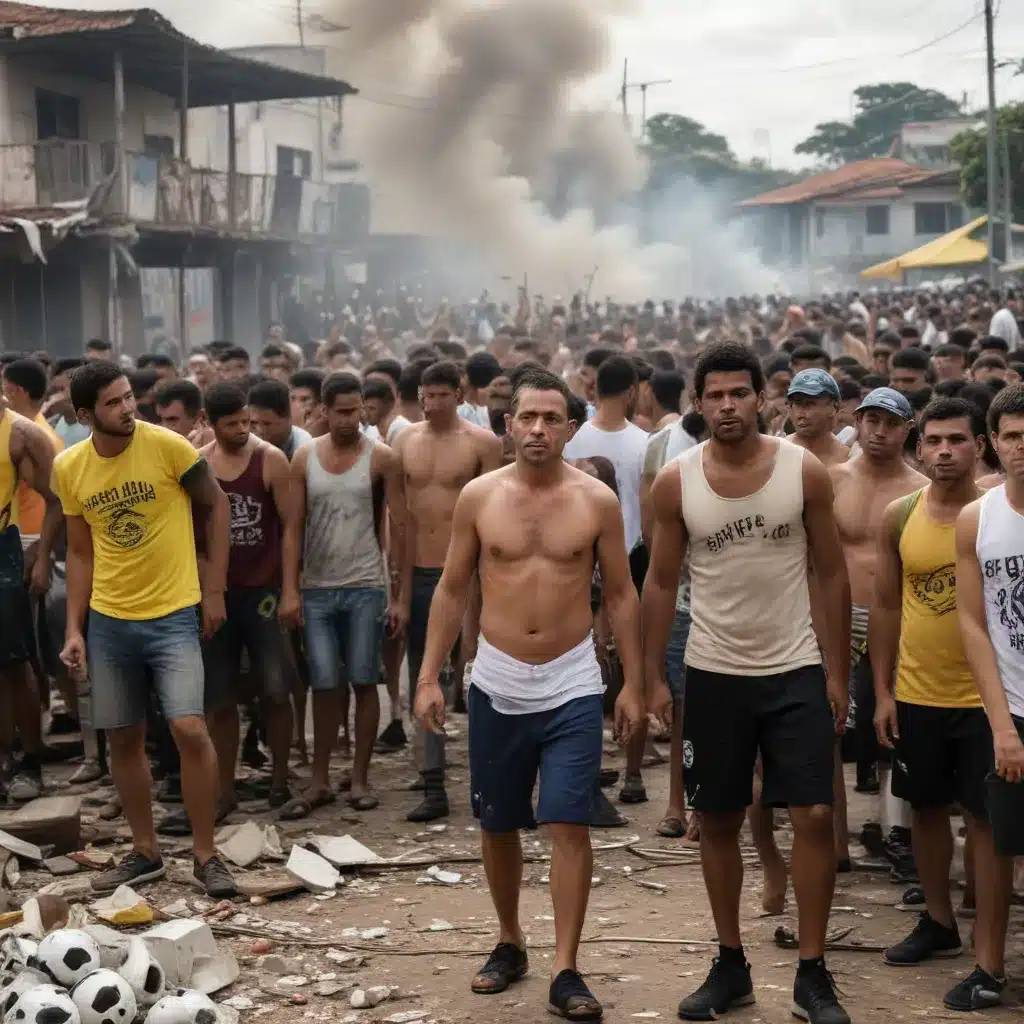
Brazilian Football Culture
Brazil’s football landscape is a vibrant tapestry of passionate fans, iconic clubs, and a rich heritage that has shaped the beautiful game itself. From the grandeur of the Maracanã to the fervent chants of the Torcidas Organizadas, the country’s football culture is unparalleled, reflecting the very essence of Brazilian identity.
Fan Engagement and Rivalry
At the heart of Brazilian football lies an unbreakable bond between the fans and their clubs. The fervour with which Brazilians follow their teams is a sight to behold, with rivalries transcending mere sport and becoming deeply rooted in regional pride, social class, and political allegiances. Derbies like the Fla-Flu, Gre-Nal, and Paulista-Corintiano are more than just matches – they are battlegrounds where supporters unleash their loyalty, passion, and occasional fury.
Organized Fan Groups (Torcidas Organizadas)
The Torcidas Organizadas, Brazil’s renowned fan groups, play a pivotal role in shaping the atmosphere and culture of the game. These highly organized supporters’ associations are the driving force behind the thunderous chants, vibrant displays, and unwavering devotion that have become synonymous with Brazilian football. However, their influence has also been a double-edged sword, as some Torcidas have been embroiled in incidents of hooliganism and violence.
Hooliganism and Violence
The dark side of Brazilian football’s fan culture is the persistent issue of hooliganism and violence. While the majority of supporters are peaceful, a minority of fans have engaged in clashes, vandalism, and even fatalities over the years. Rivalries have at times boiled over into pitched battles between opposing groups, with the authorities struggling to maintain order and control. This volatile dynamic has cast a shadow over the sport, with calls for more stringent security measures and better crowd management.
Socioeconomic Factors in Brazilian Football
Wealth Disparity and Access to Stadiums
The socioeconomic realities of Brazil have had a profound impact on the accessibility and engagement of football fans. Wealth disparity within the country has resulted in a divide between those who can afford the rising costs of attending matches and those who are priced out of the stadium experience. This exclusion of lower-income fans has led to concerns about the dilution of the sport’s grassroots connection and the potential for further societal tensions.
Policing and Security Measures
In response to the sporadic outbursts of violence, Brazilian authorities have implemented increasingly stringent security measures, including heightened police presence, surveillance, and restrictions on fan movements. While these steps aim to maintain order, they have also been criticised for their heavy-handed approach, which has at times alienated supporters and exacerbated tensions between fans and the state.
Media Influence and Narratives
The role of the media in shaping the narratives surrounding Brazilian football cannot be overstated. Outlets have the power to amplify or downplay certain incidents, often framing events through a lens that serves their own agendas. This has at times led to the distortion of facts, the demonization of certain fan groups, and the perpetuation of harmful stereotypes, further complicating the complex dynamics within the sport.
Political Dimensions of Brazilian Football
Corruption and Governance Issues
The political landscape of Brazilian football has long been marred by allegations of corruption, mismanagement, and a lack of transparency. From the upper echelons of the Brazilian Football Confederation (CBF) to the individual club administrations, the sport has been embroiled in scandals that have eroded public trust and undermined the integrity of the game. This issue has been a persistent thorn in the side of Brazilian football, with calls for reform and accountability.
Nationalism and Identity
Football in Brazil is more than just a game – it is a vital component of the nation’s cultural identity. The success of the national team, the Seleção, has become a source of immense pride and patriotism for Brazilians, transcending the boundaries of the sport. The iconic yellow and green jersey has become a symbol of national unity, and the team’s triumphs on the global stage have often been celebrated as a reflection of Brazil’s broader aspirations and resilience.
Weaponization of Chaos
Orchestrated Incidents
The turbulent nature of Brazilian football has at times been exploited for political and ideological gain. Isolated incidents of hooliganism or fan violence have been seized upon and amplified, with the aim of portraying the sport as a breeding ground for societal ills. These orchestrated events, often facilitated by outside influences, have served to distract from the deeper systemic issues plaguing the game and its governance.
Disinformation and Propaganda
In the age of social media and instant communication, the spread of disinformation and propaganda has become a concerning phenomenon in the realm of Brazilian football. Narratives are constructed, manipulated, and disseminated to serve specific agendas, whether they be political, commercial, or ideological. This weaponization of information has the potential to further polarize fan bases, undermine public trust, and obscure the true complexities of the sport.
Societal Impacts
The consequences of this weaponization of chaos in Brazilian football extend far beyond the confines of the sport. The erosion of trust, the perpetuation of harmful stereotypes, and the diversion of attention from pressing issues can have far-reaching implications for the broader social fabric of the country. Addressing these challenges will require a concerted effort to restore transparency, accountability, and the primacy of the sport’s intrinsic values.
As the world’s footballing powerhouse, Brazil’s rich and multifaceted football culture has the potential to be a unifying force, transcending divisions and fostering a sense of shared identity. However, the persistent issues of hooliganism, corruption, and the exploitation of chaos for political gain continue to cast a shadow over the beautiful game. It is incumbent upon all stakeholders – from fans and administrators to policymakers and the media – to work together in addressing these challenges and reclaiming the true spirit of Brazilian football, where the passion and unity of the supporters remain the driving force behind the country’s enduring love affair with the beautiful game.

